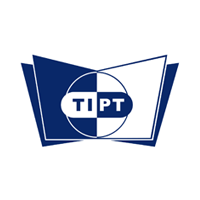
Drug shortages are among the most pressing issues facing Canada’s healthcare system. Currently, there are nearly 1700 drug shortages in Canada and these shortages can have serious consequences. In many cases, patients are forced to use alternative drugs that may not be as effective. Meanwhile, when no alternative drug is available, they may be forced to go entirely without the pharmaceutical treatments that they need.
The causes of drug shortages are complex and multifaceted. They may include, for example, a shortage of the raw materials needed to make certain drugs, or a pharmaceutical company choosing to discontinue a drug because it is no longer profitable. However, quality control issues are believed to be the root cause of most shortages. That’s why, if you pursue training in pharmaceutical quality control, you could be on the frontlines of battling this ongoing problem. Read on to learn more.
How Pharmaceutical Quality Control Issues Contribute to Drug Shortages
Most drug shortages are the result of a disruption in the manufacturing process, which can be caused by a number of factors. For example, a company may have trouble sourcing the ingredients it needs for a drug, or a natural disaster could cause a plant to shut down temporarily. For example, Hurricane Maria devastated Puerto Rico’s large pharmaceutical manufacturing industry and led to shortages of many medical products, including IV bags.

However, most manufacturing disruptions are caused by quality control issues. According to the US Food and Drug Administration (FDA), two thirds of drug shortages are related to quality control issues. Specifically, 31% are caused by quality issues with a specific product, while 35% are caused by quality control issues with manufacturing facilities, such as if a facility suffers from mold or roof leakage.
Pharmaceutical Quality Control Can Make a Difference in Combating Drug Shortages
Because quality control issues play a large role in the current drug shortage crisis, students with training in quality control can have a significant part in helping resolve this problem. In your quality control courses, you’ll learn about good manufacturing practices (GMPs), which are essential for maintaining the quality and integrity of pharmaceutical products. GMPs are a set of guidelines that manufacturers follow in order to create safe and consistent products. In Canada, GMPs are overseen and enforced by federal government agency Health Canada. When a manufacturer fails to meet GMP standards, its facilities may be shut down until the problem is remedied, which can cause a shortage of drugs.

Health Canada has identified a number of ways that GMPs can be better maintained so as to reduce the number of drug shortages linked to quality control issues. For example, it has recommended that manufacturers include strict quality agreements with third-party suppliers that contain ongoing data reporting and performance indicator requirements. Health Canada has also urged manufacturers to make continuous investments to improve facilities and to adapt advanced quality assurance practices. With staff educated in quality control training from a reputable pharmaceutical education institute, manufacturers will be better equipped to comply with these recommendations and to tackle the drug shortage problem.
Are you interested in a career in pharmaceutical quality control?
Contact Toronto Institute of Pharmaceutical Technology to learn more about our programs.
